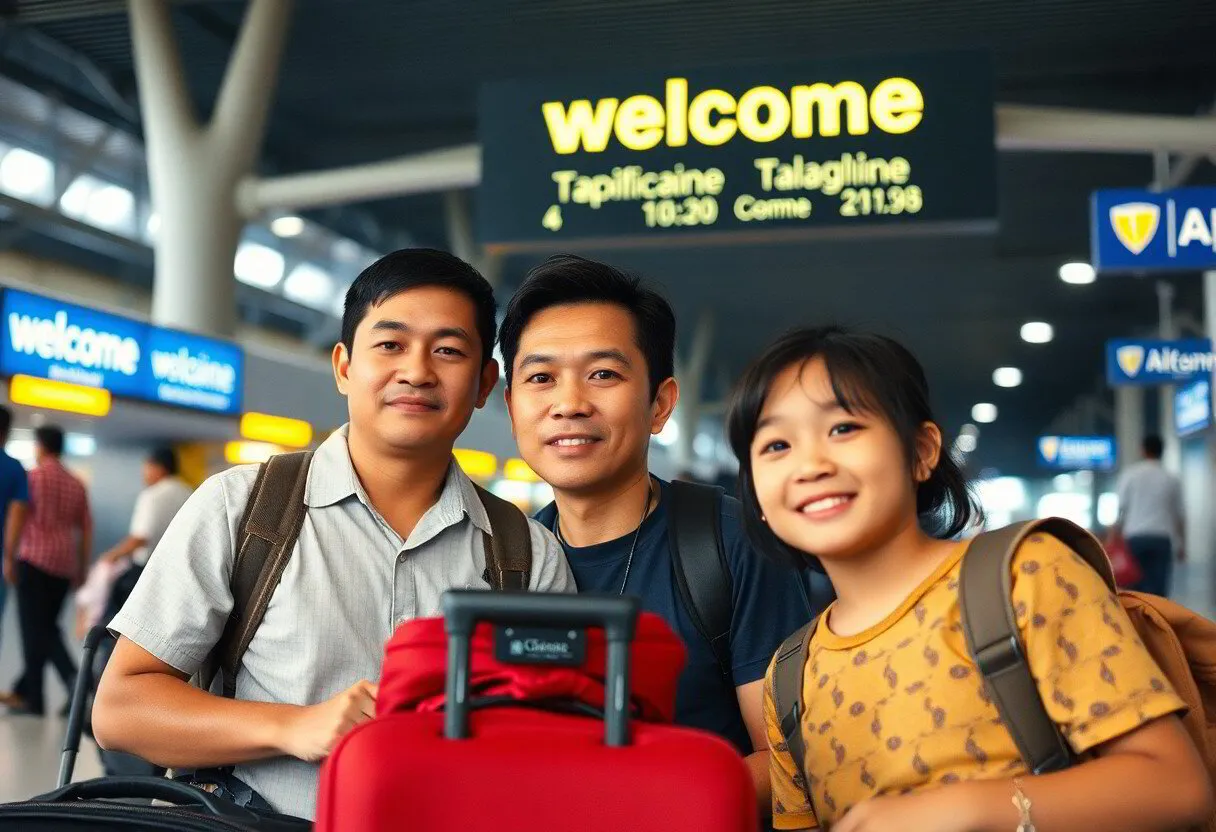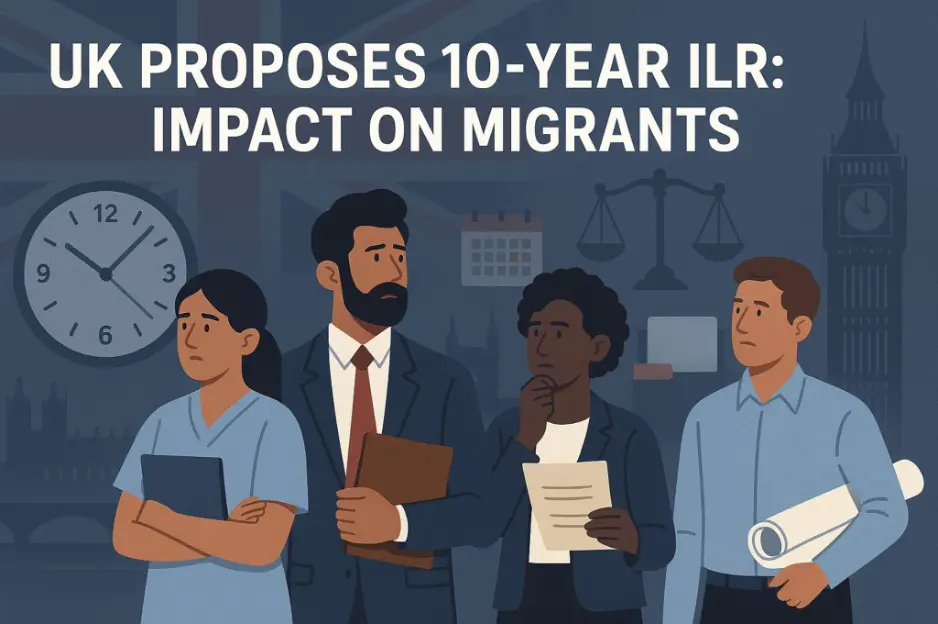The United Kingdom, a global hub for education, work, and cultural diversity, has long attracted immigrants from across the world. In 2025, however, the UK’s immigration landscape is undergoing a seismic shift, driven by new policies aimed at reducing net migration while addressing labor shortages and public sentiment. From tightened visa regulations to stricter settlement pathways, the changes affect students, workers, families, and asylum seekers alike. This article explores the latest UK immigration policies, visa processes, challenges faced by immigrants, personal stories of adaptation, and practical tips for thriving in a new cultural environment. Blending facts, human experiences, and actionable advice, it offers a comprehensive guide for navigating this complex terrain.
UK Immigration Policy in 2025: A New Era
The UK’s immigration system is being reshaped under Prime Minister Keir Starmer’s Labour government, with the “Restoring Control over the Immigration System” white paper, published in May 2025, setting the tone for reform. The government’s goal is to create a “controlled, selective, and fair” system, prioritizing high-skilled talent and economic contributions while reducing reliance on low-skilled labor. Net migration, which surged to nearly 1 million in the year ending June 2023, has fueled political pressure to tighten borders. The white paper outlines eight key changes, including stricter visa criteria, longer residency requirements, and enhanced sponsor compliance. These reforms aim to balance economic needs with public concerns, but they pose new challenges for immigrants.
(One significant policy shift is the emphasis on integration. Migrants are now expected to demonstrate proficiency in English and a commitment to British values, with changes to the Life in the UK Test under review to better assess cultural understanding. Additionally, the Earned Settlement Model extends the standard residency period for permanent settlement from 5 to 10 years, though those with substantial economic or societal contributions may qualify earlier. This reflects a focus on long-term integration but raises the bar for newcomers.
(“We want a system that welcomes talent but ensures migrants contribute to our economy and society,” said Home Secretary Yvette Cooper. “These changes are about fairness and sustainability.”
Visa Processes: Pathways and Requirements
The UK offers various visa categories, including Skilled Worker, Student, Family, and Global Talent visas, each with specific requirements. Below is a step-by-step guide to navigating the process in 2025.
Skilled Worker Visa: This visa, now requiring a degree-level qualification for most roles, has seen its eligible job list shrink, with over 180 occupations removed. Applicants need a job offer from a licensed sponsor, a minimum salary of £38,700 (up from £26,200), and proof of English proficiency at B1 level or higher. Processing times average 3–8 weeks, and costs include a £1,500–£2,000 application fee plus the Immigration Skills Charge. Tip: Ensure your employer’s sponsor licence is valid, and prepare certified translations of academic credentials.
(Student Visa: International students face stricter sponsorship rules, with universities now required to prove robust recruitment efforts for domestic students. The Graduate Visa, allowing post-study work, has been cut from 2 years to 18 months. Applicants must show acceptance to a UK institution, financial stability (at least £1,334/month in London), and English proficiency. Tip: Apply early, as processing can take 8–12 weeks, and verify your institution’s sponsor status.
(Family Visa: For those joining spouses or dependents, the income threshold has risen to £28,000/year (from £18,600). Applicants must prove a genuine relationship and financial self-sufficiency. Tip: Gather payslips, bank statements, and relationship evidence well in advance to avoid delays.
(Asylum and Humanitarian Routes: Asylum seekers must apply within 7 days of arrival and face stricter criteria, with those entering illegally barred from citizenship. Tip: Seek legal aid from organizations like the Refugee Council to navigate the process.
(General advice: Use the UK government’s online portal for applications, and double-check documents for accuracy. Legal consultation can prevent costly errors, especially for complex cases like asylum or family reunification.
Challenges Immigrants Face
Immigrants in 2025 face a range of challenges, from navigating stricter policies to overcoming social and economic barriers. The tightened Skilled Worker Visa rules have excluded medium-skilled roles (RQF levels 3–5), impacting sectors like social care, which previously relied on overseas workers. This has led to a projected 39,000 fewer migrants annually by 2029. For students, the shortened Graduate Visa duration limits post-study opportunities, pushing many to leave after their studies. The pressure to depart is real, with reports of foreign students being ordered to leave upon visa expiry, as seen in recent cases.
(Financial burdens are another hurdle. The Immigration Skills Charge has increased by 32%, and visa fees are rising across categories. For example, the Certificate of Sponsorship now costs £480 for small sponsors. Employers are also prohibited from passing sponsorship costs to workers, which, while protective, may deter smaller businesses from hiring migrants. Compliance is critical, as the new Fair Work Enforcement Body can revoke sponsor licences for breaches.
(Socially, immigrants often face isolation and discrimination. Language barriers and cultural differences can make integration daunting, especially in rural areas with less diverse communities. Asylum seekers, in particular, face harsh scrutiny, with new “good character” rules denying citizenship to those who entered illegally, regardless of time spent in the UK. This policy has sparked controversy, with human rights groups arguing it penalizes vulnerable populations.
(“I arrived in London from Nigeria in 2023, expecting opportunity,” said Aisha, a 29-year-old care worker. “But the new rules mean my job no longer qualifies for a visa. I’m heartbroken, wondering if I’ll have to leave.”
Overcoming Challenges: Practical Tips
Financial Planning: Budget for visa fees, legal costs, and living expenses. London’s high cost of living (rent averages £2,000/month) requires careful planning. Open a UK bank account early and explore cost-of-living grants for students or low-income families.
Legal Support: Engage immigration solicitors for complex applications. Free resources like Citizens Advice or the Immigration Law Practitioners’ Association can provide guidance. Act quickly to meet deadlines, especially for asylum claims.
Networking: Join community groups or professional networks like the Migrant Leaders charity to build connections and access job opportunities. LinkedIn is a valuable tool for skilled workers.
Language Skills: Enroll in English courses (many are free through local councils) to meet visa requirements and ease social integration. Apps like Duolingo can supplement formal learning.
Success Stories: Immigrant Resilience
Despite challenges, many immigrants thrive in the UK, contributing to its economy and cultural fabric. Take Priya, a 32-year-old software engineer from India, who arrived on a Skilled Worker Visa in 2022. After navigating the points-based system, she secured a role at a London tech firm.
“The visa process was daunting, but I prepared meticulously,” Priya said. “Joining a local coding meetup helped me feel at home and land my job.”Priya’s story highlights the importance of preparation and community engagement.
Similarly, Ahmed, a 27-year-old Syrian refugee, gained asylum in 2021 and now runs a small catering business in Manchester.
“Learning English and connecting with local charities changed everything,” he said. “I had to prove myself, but the UK gave me a chance to rebuild.”His business, specializing in Middle Eastern cuisine, employs three locals, showcasing the economic impact of migrant entrepreneurship.
These stories underscore a key truth: resilience and adaptability are vital. Immigrants who leverage resources, build networks, and stay informed about policy changes often find success.
Cultural Integration: Blending In While Staying True
Adapting to British culture can be both exciting and challenging. The UK’s multicultural cities like London and Birmingham offer vibrant communities, but cultural nuances—like understated communication or pub culture—can take time to grasp. Understanding these norms is key to thriving.
Language: Fluency in English is not just a visa requirement but a gateway to social and professional success. Practice daily through conversations, media, or language exchanges. Tip: Watch British shows like “The Great British Bake Off” to pick up slang and humor.
Social Norms: Brits value politeness, punctuality, and queuing. Small gestures, like saying “please” and “thank you,” go a long way. Joining local clubs (e.g., sports teams or book clubs) can foster connections. Tip: Attend community events like festivals or farmers’ markets to meet locals.
Workplace Culture: UK workplaces emphasize collaboration and initiative. Be proactive but respectful of hierarchy. Tip: Familiarize yourself with workplace laws via the government’s ACAS website to understand your rights.
Food and Lifestyle: Embrace British staples like fish and chips or afternoon tea while sharing your own cuisine. Food is a great connector—host a dinner to introduce friends to your culture. Tip: Explore budget-friendly supermarkets like Aldi to manage costs.
“I struggled with the British sense of humor at first,” said Maria, a 25-year-old student from Spain. “But joining a university society helped me understand and love it. Now I’m the one making tea for everyone!”
Legal Guidance: Staying Compliant
Navigating UK immigration law requires vigilance. The Home Office now has expanded powers to conduct compliance audits, especially for sponsors. Employers face a 2-year cooling-off period if their licence is revoked for non-compliance. For individuals, overstaying a visa or working without permission can lead to deportation and a 10-year re-entry ban. Stay informed via the UK government’s immigration website or trusted legal advisors.
(Key updates for 2025:
- EU Settlement Scheme: Pre-settled status holders will automatically convert to settled status from late January 2025, eliminating separate applications.
(- Citizenship Rules: From February 2025, illegal entry disqualifies applicants from citizenship, regardless of time spent in the UK.
(- eVisas and ETA: The rollout of electronic visas and Electronic Travel Authorisation continues, but expect delays. Always carry digital proof of status.
(Tip: Use apps like View and Prove Your Immigration Status to manage eVisas. Regularly check for policy updates, as changes can occur rapidly.
Looking Ahead: Opportunities Amid Change
While 2025 brings stricter rules, opportunities remain for those who plan strategically. The Global Talent Visa and High Potential Individual Visa are being expanded to attract exceptional talent in fields like tech and academia. These pathways reward innovation, with faster routes to settlement for those demonstrating significant contributions. Additionally, the UK’s labor shortages in healthcare, IT, and engineering mean skilled workers are still in demand.
(For students, the UK remains a top destination, with world-class universities and vibrant campus life. However, the shortened Graduate Visa means planning for post-study work or further education is crucial. Start networking early to secure opportunities before your visa expires.
Asylum seekers and refugees face tougher scrutiny but can find support through charities and legal aid. Community integration programs, like those offered by the British Red Cross, provide language classes and job training. Perseverance is key, as demonstrated by countless immigrants who have built new lives despite adversity.
The UK’s immigration system in 2025 is a complex but navigable landscape. By understanding policies, preparing thoroughly, and embracing cultural adaptation, immigrants can not only survive but thrive. The journey is challenging, but the rewards—personal growth, opportunity, and belonging—are worth it.



















0 Comments